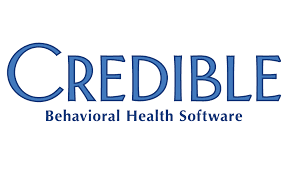How to Praise and Encourage Your Child
By Robin Entress, LCSW

Praise from trusted adults is what helps children feel good about themselves and motivates them to accomplish things, right? Well, partially. Praise can feel great. But knowing your own strengths, and feeling a sense of fulfillment and achievement is pretty great too! There can be some pitfalls to the use of praise, and we’re here to suggest some questions to ask yourself about the way you give it. With a few slight changes or new additions to your collection of ways to praise, you might just see a whole lot of individual, internal growth from the littles in your life!
The most important takeaway from this article is that praising outcomes (e.g. “good job”) does not necessarily motivate a child to repeat their efforts in the future as much as praising the efforts and process they went through while attempting the behavior. This way of approaching encouragement is called “process praise” and it comes from the philosophy of encouraging the child, regardless if the choices and outcomes are good or bad.
Why take this approach? Well, by praising a child’s efforts and making note of when they improve with practice, you’re letting them know that they have some control over their abilities and behaviors, and that things can change over time. As stated by Gwen Dewar, PhD in Parenting Science, “Process praise can also foster the most essential attitude for success - the belief that we can improve ourselves through effort.” Instead of letting one failed attempt throw them off course, when we praise the effort put in to overcoming a difficulty, you are helping children see they have potential, and that their effort and practice makes a difference.
How to praise the process:
What does this kind of praise sound like?
- “You figured out a smart way to build such a tall tower!”
- "I like the way you added these colors to your painting."
- "I can tell you've been working at this.”
- “Thank you, you’re such a good helper.”
These kinds of statements can help teach kids about their own abilities and the difference it makes when they try to do something. Sarah Ockwell Smith’s article in Motherly provided additional examples of how to praise a child in this way.
Instead of: "Good job for calming down!"
Try: "You were really mad, weren't you? It's OK to be angry sometimes. As you get older you'll learn more ways to control your temper. Until then I'm happy to help you to calm down.’" This approach works well even if the child did not fully succeed in calming down."
Instead of: "Yay you used the potty!"
Try: "You used the potty! I know you tried a few times this morning, but all that practice has worked hasn't it? Now you did it!"
She also warned about paying too much attention to looks or innate talents.
Instead of: "You look so handsome/pretty!"
Try: "I love the animals on your t-shirt, which one is your favorite? Why is that?"
(Remember, a lot of this is about giving the child some control. None of us has control over every aspect of our physical appearance, but if we focus on a child’s interests, preferences, and actual strengths and abilities, we can find new things to talk about and further boost their self-esteem.)
What can kids learn?
This encouraging approach will help a child know they can:
- Learn new things
- Make others happy
- Help others
- Assess their own progress
- Learn from their mistakes
- Pay attention to their own ideas and interests
Don’t overdo it!
Our culture has been criticized for over-complimenting – too often responding with “awesome!” or “wow!” McKenna Meyers’ article from WeHaveKids noted that these compliments can eventually begin to sound insincere to children and can lead them to over-rely on praise from adults and be less likely to take risks. Instead of using the same couple of phrases repeatedly for everything a child does, here are some of the suggestions that Meyers gives about giving praise:
- Zero in on a child’s feelings about an accomplishment, even more than the accomplishment itself. This helps kids appreciate feeling that sense of achievement that we all know and love.
- Ask about what a child learned (rather than what grade they received).
- Encourage self-care as a reward for hard work (self-care for kids could include activities like riding a bike, doing yoga, spending time in nature, reading, socializing, etc., but not using technology).
Great things to praise include:
- Pro-social behaviors such as taking turns and treating others kindly (“Your friend is happy you shared your toy.”)
- Compliance with rules and listening (“Thanks for cleaning your room so well.”)
- Trying hard at something (“Look at all the buttons you buttoned.”)
An additional benefit of this kind of praise is it focuses on catching the child doing well, instead of on the child’s negative behaviors.
So, before the next time you praise a child, consider asking these questions of yourself:
- Is the accomplishment out of the ordinary? How big of a reaction is called for?
- Are you praising just the outcome or the efforts and choices the child made to reach the outcome?
- Does your praise reinforce traits you hope to see in the child, like kindness, hard work, patience or courage? Think about the behaviors you always want to see more of!
For more ideas about encouraging a child’s positive self-esteem, there are many wonderful parenting websites, including Motherly, verywell family, Grow by webmd, Parenting Science, PBS Kids for Parents, and Child Development Institute. These sites have a wealth of user-friending information about parenting.
Other articles used as resources in this post include:











